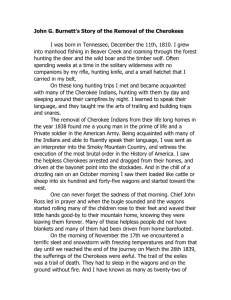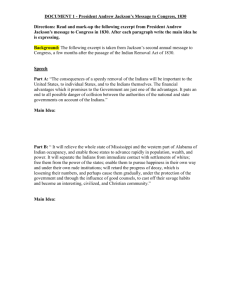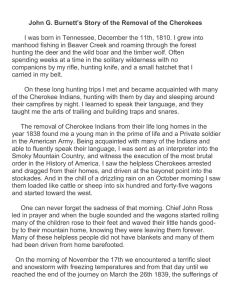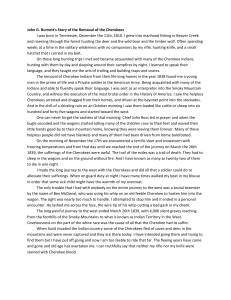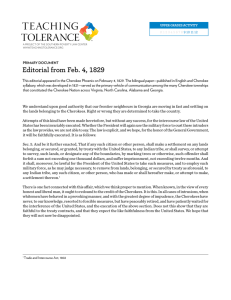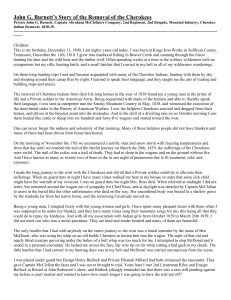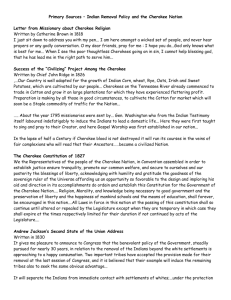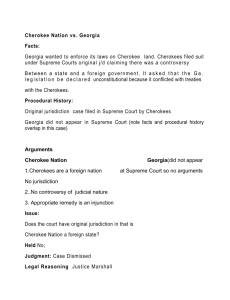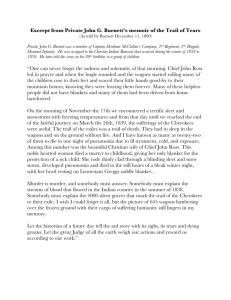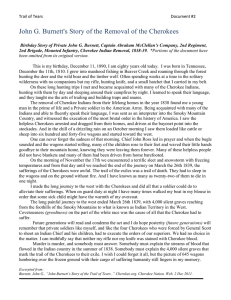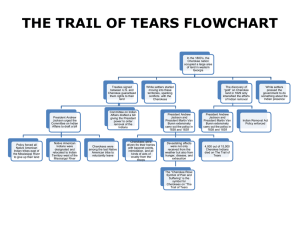Name_______________________ Date____________________
advertisement
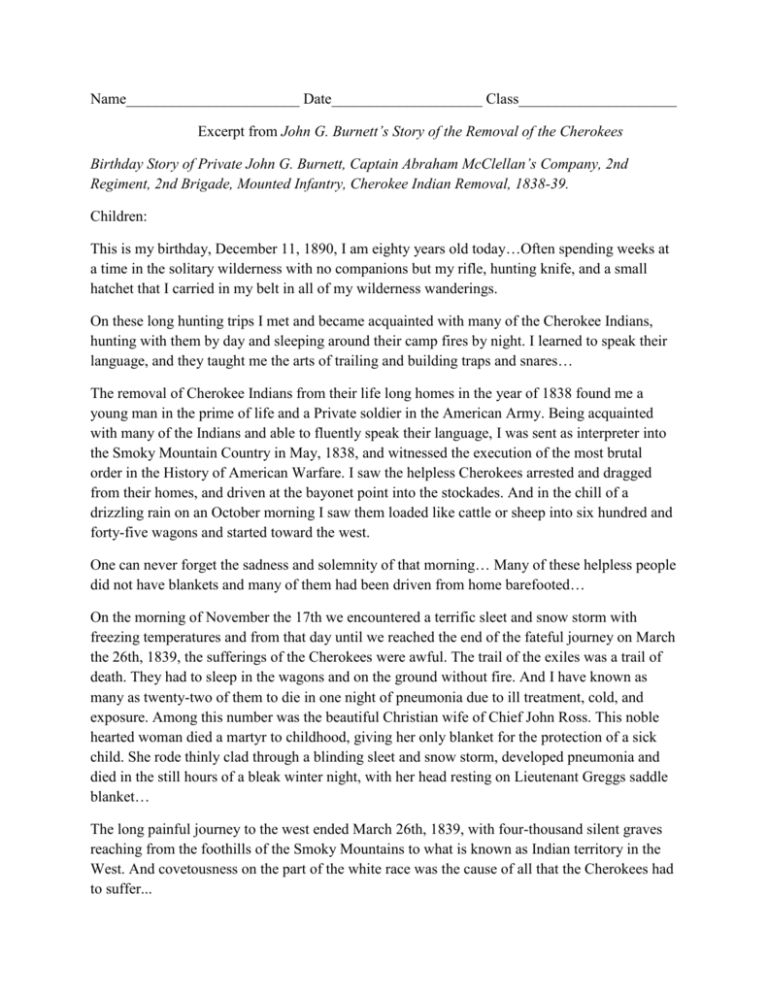
Name_______________________ Date____________________ Class_____________________ Excerpt from John G. Burnett’s Story of the Removal of the Cherokees Birthday Story of Private John G. Burnett, Captain Abraham McClellan’s Company, 2nd Regiment, 2nd Brigade, Mounted Infantry, Cherokee Indian Removal, 1838-39. Children: This is my birthday, December 11, 1890, I am eighty years old today…Often spending weeks at a time in the solitary wilderness with no companions but my rifle, hunting knife, and a small hatchet that I carried in my belt in all of my wilderness wanderings. On these long hunting trips I met and became acquainted with many of the Cherokee Indians, hunting with them by day and sleeping around their camp fires by night. I learned to speak their language, and they taught me the arts of trailing and building traps and snares… The removal of Cherokee Indians from their life long homes in the year of 1838 found me a young man in the prime of life and a Private soldier in the American Army. Being acquainted with many of the Indians and able to fluently speak their language, I was sent as interpreter into the Smoky Mountain Country in May, 1838, and witnessed the execution of the most brutal order in the History of American Warfare. I saw the helpless Cherokees arrested and dragged from their homes, and driven at the bayonet point into the stockades. And in the chill of a drizzling rain on an October morning I saw them loaded like cattle or sheep into six hundred and forty-five wagons and started toward the west. One can never forget the sadness and solemnity of that morning… Many of these helpless people did not have blankets and many of them had been driven from home barefooted… On the morning of November the 17th we encountered a terrific sleet and snow storm with freezing temperatures and from that day until we reached the end of the fateful journey on March the 26th, 1839, the sufferings of the Cherokees were awful. The trail of the exiles was a trail of death. They had to sleep in the wagons and on the ground without fire. And I have known as many as twenty-two of them to die in one night of pneumonia due to ill treatment, cold, and exposure. Among this number was the beautiful Christian wife of Chief John Ross. This noble hearted woman died a martyr to childhood, giving her only blanket for the protection of a sick child. She rode thinly clad through a blinding sleet and snow storm, developed pneumonia and died in the still hours of a bleak winter night, with her head resting on Lieutenant Greggs saddle blanket… The long painful journey to the west ended March 26th, 1839, with four-thousand silent graves reaching from the foothills of the Smoky Mountains to what is known as Indian territory in the West. And covetousness on the part of the white race was the cause of all that the Cherokees had to suffer... Chief Junaluska was personally acquainted with President Andrew Jackson…Chief John Ross sent Junaluska as an envoy to plead with President Jackson for protection for his people, but Jackson’s manner was cold and indifferent toward the rugged son of the forest who had saved his life… The doom of the Cherokee was sealed. Washington, D.C., had decreed that they must be driven West and their lands given to the white man… However, murder is murder whether committed by the villain skulking in the dark or by uniformed men stepping to the strains of martial music.
